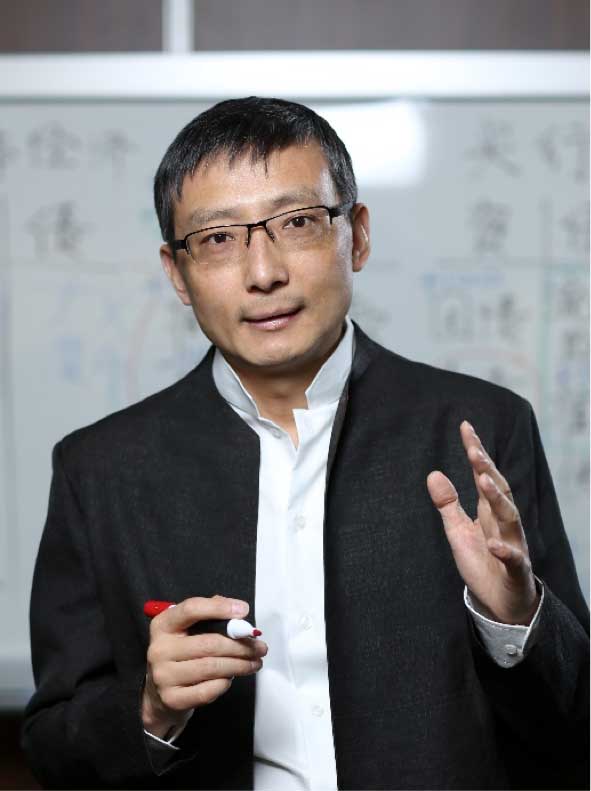A column on diagnosis and in-depth analysis of China and global economic recovery by Li Wei, professor of economics at Cheung Kong Graduate School of Business (CKGSB) has been posted in the Chosun Ilbo Weekly Biz ‘Insight’ section on March 18. A bi-weekly magazine ‘Chosun Weekly Biz’, published by one of the top daily newspaper in Korea ‘Chosun Ilbo’, provides a wealth of intellectual and information of Korea and global economic issues.
Prof. Li Wei, Martin Feldstein, a professor of economics at Harvard University, Mario Draghi, the president of the European Central Bank (ECB) and Ayhan Kose, the director of Development of the World Bank have provided the analysis of the global economy from the perspectives of each China, the United States, and Europe, respectively.
Prof. Li Wei forecasted that a robust growth rate for China will be above 6% in the next few years and biggest obstacles for economic growth would be corporate and household debt.

Li Wei, professor of economics at CKGSB
In this column, he said the world economy is still recovering from the financial crises that started in 2008. Some countries, for example, the US and Germany, are recovering faster than others. But global demand remains relatively weak. In such an environment, additional policy support from the fiscal side may be needed for an extended period in both Europe and North America
He pointed out the most pressing risk that the Chinese economy faces is the housing bubble. Related to this bubble are China’s over investment in productive capacity, and rapidly growing corporate, government and household debts.
The rapid increase in the costs of doing business in China, caused mainly by soaring rental costs for office space and factory floors, has meant that additional investments face a much-diminished rate of return. Heroic measures and efforts have been taken to rein in the runaway price of residential housing units. These efforts have stopped or much reduced the upward momentum of housing prices in first and second tier cities.
Prof. Li Wei mentioned additional spending on infrastructure and structural reform by the government needed for Chinese constant economic growth.
He also mentioned that global political risks have been increased sharply since the election of Donald Trump in the United States. The global financial markets so far do not seem to have priced in Trump’s anti-globalization policies, in particular, his promised tariffs on Chinese imports. One reason may be that China currently is trying to raise the value of RMB and to rein in capital flight. Another reason may be that ‘A Trade War’ between China and the US is expected to be very costly to both sides and to the rest of the world. It is therefore rational not to do it. Prof. Li Wei believes that the trade conflict between China and the US, Of course, in the long term, it will be a threat to global economic growth.
To read the full article in Chosun ilbo Weekly biz on Prof. Li Wei’s column please click here.
(the online link hasn’t been shared)
